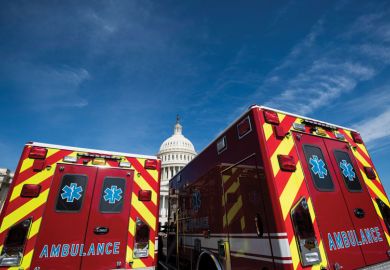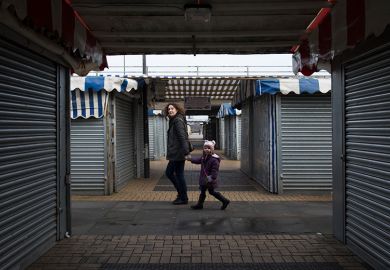Australia’s university sector is scrambling to determine whether it will benefit from the government’s latest stimulus package, after Canberra unveiled an unprecedented A$130 billion (£65 billion) scheme to shield the labour market from the Covid-19 economic wrecking ball.
The JobKeeper Payment, announced on 30 March, is a new subsidy for employers facing catastrophic loss of income because of the pandemic. Companies and organisations receive A$1,500 per fortnight for each eligible employee, for up to six months.
To qualify, employers with turnovers of up to A$1 billion must face losses of at least 30 per cent. Those bringing in A$1 billion or more must be facing the loss of at least half of their takings.
Details of how these requirements will be measured are expected to be outlined in legislation that prime minister Scott Morrison indicated would take “at least this week to draft”.
Intense analysis, modelling and manoeuvring awaits as academic groups gauge universities’ prospects for eligibility – and whether lobbying could improve the odds.
The legislation will require support from opposition or minor party senators, who could be convinced to move amendments making the package more favourable to universities – as occurred on 23 March, when students were included among the welfare recipients eligible for a temporary doubling of income support payments.
The financial outlook for Australian universities appears increasingly grim. Australian National University policy specialist Andrew Norton said that a higher education financial crisis could be “imminent”.
Professor Norton said that his concerns included new questions over lucrative international enrolments. He cited anecdotal reports that some foreigners who had reached Australia despite travel bans had subsequently returned home. It was unclear whether they had dropped out entirely or simply decided that if they were forced to study online, they may as well do so in their home countries.
Another question was how many domestic students would tolerate remote study – an uncertainty exacerbated by the “lengthening” census dates as universities gave students more time to decide. “While it’s showing great concern for their students, they’re spending money they don’t have,” Professor Norton said.
“I can imagine scenarios where a whole lot of people decide they don’t want to study this semester. That would cause a loss of revenue for the university because they’re only paid if the student reaches the census date.”
Innovative Research Universities executive director Conor King welcomed the new stimulus package. “Overall, the scheme is a major effort to keep employers paying people even if they’re not working.” But he said universities would need to scrutinise the detail.
Even with clarification of eligibility, universities are unlikely to be able to precisely estimate their losses before later this year. They receive regular payments based on expected numbers, and it will take time to determine the extent to which these payments will be reduced– and how much money they will shell out on scholarships and other forms of assistance.
Adding to the uncertainty, it is not clear whether donations and investment income will be included in the calculations of their turnover – and the crucial judgment of whether they reach the A$1 billion benchmark.
Moreover, they can only accept subsidies for permanent employees or “long-term casuals” employed regularly over the past 12 months. As universities are highly casualised workplaces, many staff may not meet this precondition.
Register to continue
Why register?
- Registration is free and only takes a moment
- Once registered, you can read 3 articles a month
- Sign up for our newsletter
Subscribe
Or subscribe for unlimited access to:
- Unlimited access to news, views, insights & reviews
- Digital editions
- Digital access to THE’s university and college rankings analysis
Already registered or a current subscriber?










